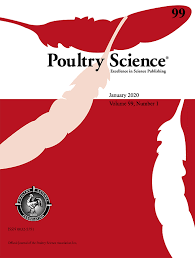Document type : Article published in The Conversation
Authors: Eugénie Duval, Benjamin Lecorps
Preview: Organic farmers must follow specific rules that are more stringent than the minimum rules set out for animal protection - here again, organic farmers can go a step further, proactively adopting practices that are beneficial for their animals. "Contributing to high animal welfare standards" is one of the objectives of organic farming, while the assurance of better animal welfare is one of the motivations for consumers to choose organic products.
But do the regulations that apply to organic production in fact ensure optimal levels of animal welfare?
In many respects, organic regulations do promote better, albeit not optimal, animal welfare compared with the conventional farming rules.
A more natural environment
Access to the outdoors is probably one of the most significant advances made by organic farming for better animal welfare. [...]. This outdoor space must also meet certain requirements that vary according to the species - access to a body of water for waterfowl, access to a shelter or a shady spot for terrestrial animals.
Prohibition of isolation, tethering and cage rearing
While cage rearing is still allowed in conventional farming, it is prohibited on European organic farms. [...] So-called 'tethering' systems are common in some EU countries, including Sweden and Germany. This practice, which considerably restricts the freedom of movement of the animals, is prohibited in organic farming.
There are exceptions, however, but these are limited: in some farms (especially in mountainous areas), tethering of animals is still possible if the animals have regular access to the outdoors.
Another exception concerns the free movement of sows. [...] In organic farming, sows can be restrained only for a short period (during the eight days around farrowing for French farms). This is a considerable improvement, although it is regrettable that the use of such cages is not simply prohibited.
Isolating animals is another practice that is prohibited in principle in organic farming, but which may be allowed in certain cases for a limited period of time.
Social isolation can seriously compromise the development of young animals such as calves, which are usually housed individually after birth. In organic farming, they can be left alone only for a week, whereas in conventional farming this isolation can last up to eight weeks. This is a big difference, as social contact is important for these animals. [...]
Towards the elimination of physical mutilation?
Organic regulations are also intended to limit physical mutilation.
Apart from castration, which is authorised "to ensure product quality and maintain traditional practices", forms of mutilation such as tail docking in sheep, beak trimming in poultry or dehorning of calves are only authorised "exceptionally", "on a case-by-case basis and only when these practices improve the health, welfare or hygiene of the animals or when the safety of the workers is compromised".
However, some of these forms of mutilation are still common in practice. This is particularly true of dehorning, as cows that have kept their horns are considered more dangerous for farmers.
In order to minimise the suffering of the animals during these surgical interventions, it is compulsory in organic farming to anaesthetise the animal and/or administer painkillers, which is a step in the right direction since such acts of mutilation are still too often carried out without any pain management.
Legislators could have gone further by imposing the administration of an anaesthetic and a painkiller, as recommended in expert studies, particularly for dehorning. Above all, they could have provided a better regulatory framework for the use of these practices or even have prohibited them.
More frequent controls
The specific rules for organic livestock contain significant advances in improving the lives of farmed animals. Farms are also regularly inspected for compliance with these rules, which is not the case for conventional farms, which are rarely inspected.
France, like most EU countries, has entrusted the inspection of organic farms to independent private bodies. French organic farms must be inspected at least once a year by one of the certifying bodies approved by the Institut National de l'Origine et de la Qualité (a public institution attached to the French Ministry of Agriculture) and the Comité Français d'Accréditation. This annual inspection may be supplemented by unannounced checks.
End of life: a lack of ambition
While there are many rules on the conditions under which animals are reared in organic farming, the end-of-life rules (i.e. once they leave the farm for transport and slaughter) are much more limited. When it comes to transport and slaughter, animals face - with a few exceptions - the same difficulties, whether they come from organic or non-organic farms.




